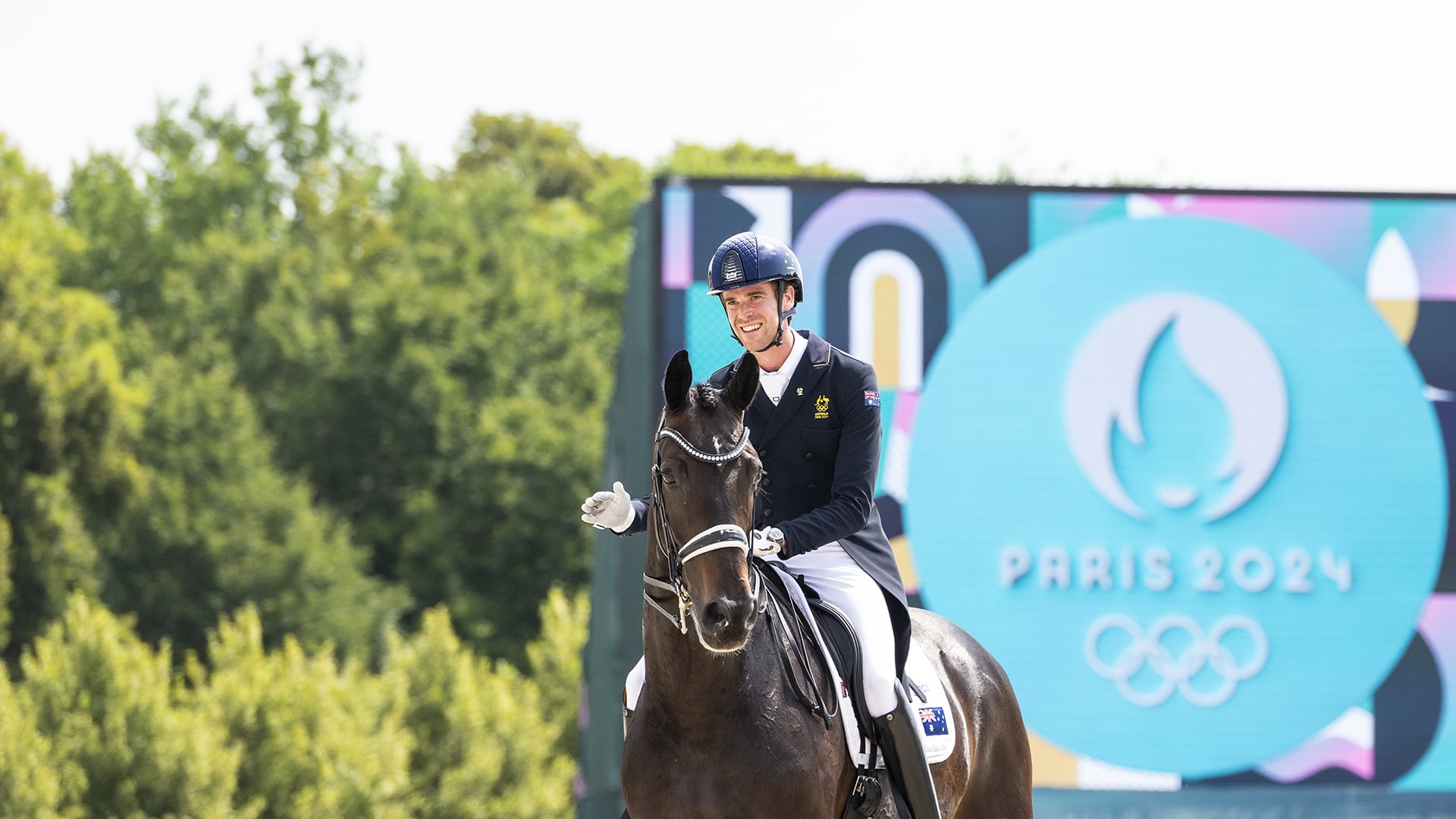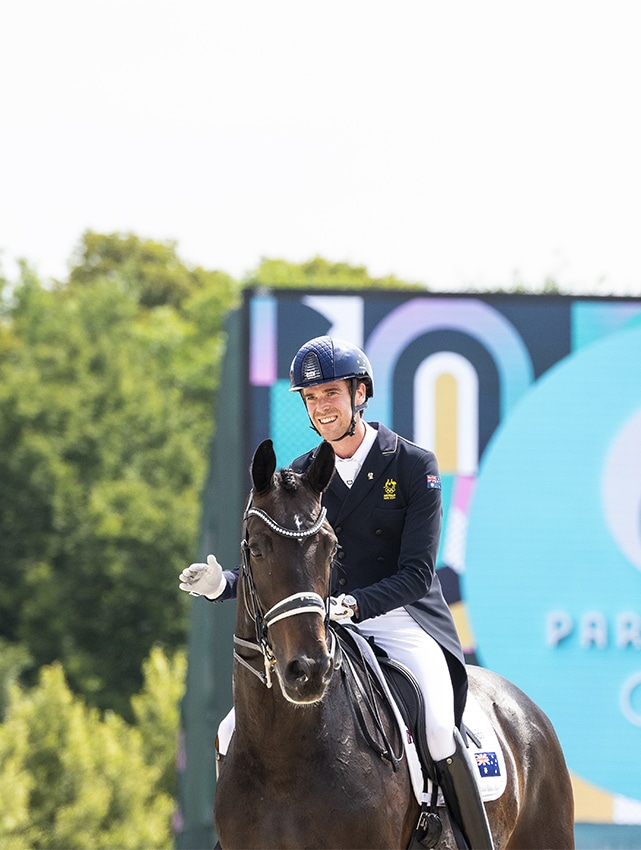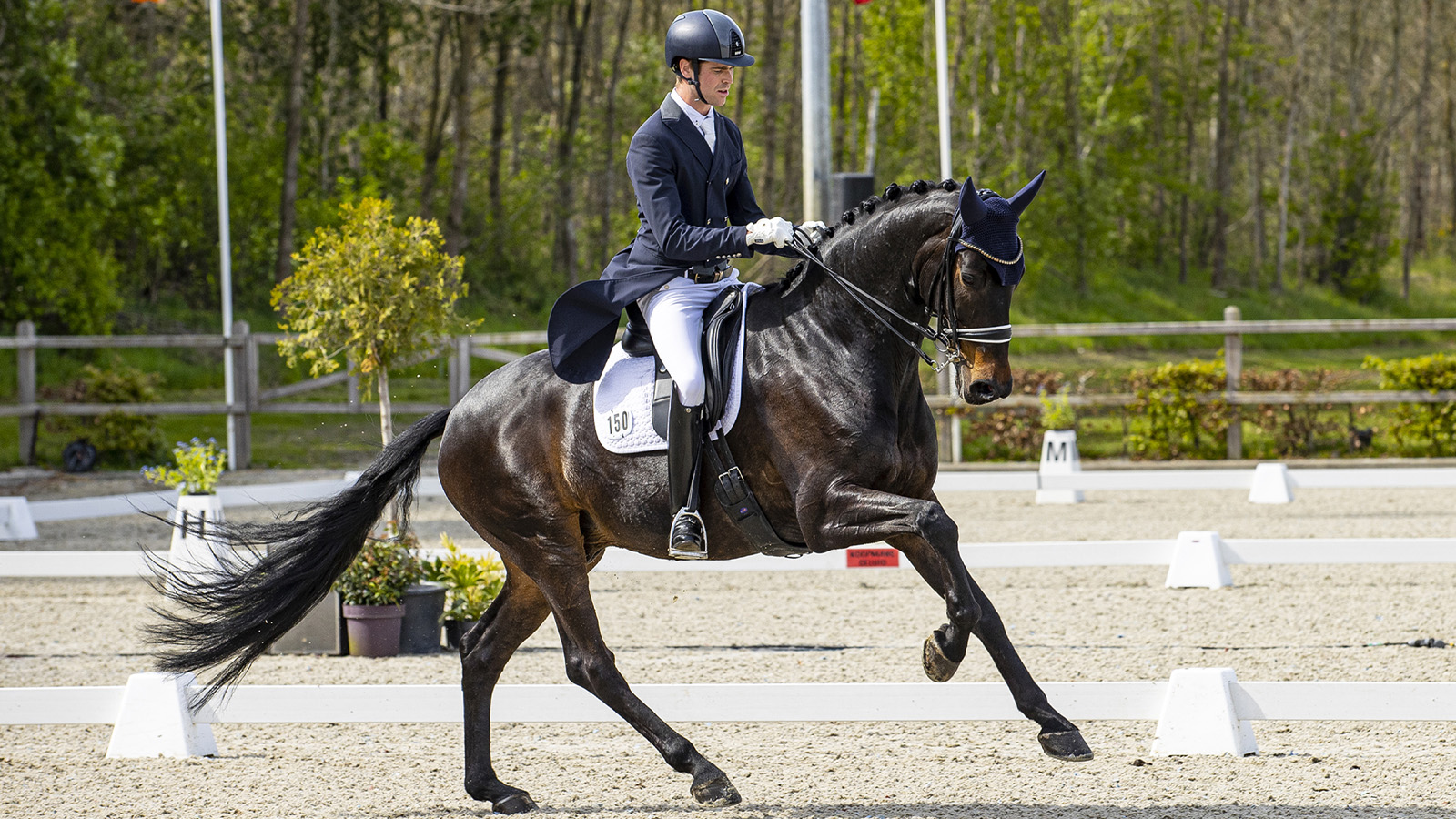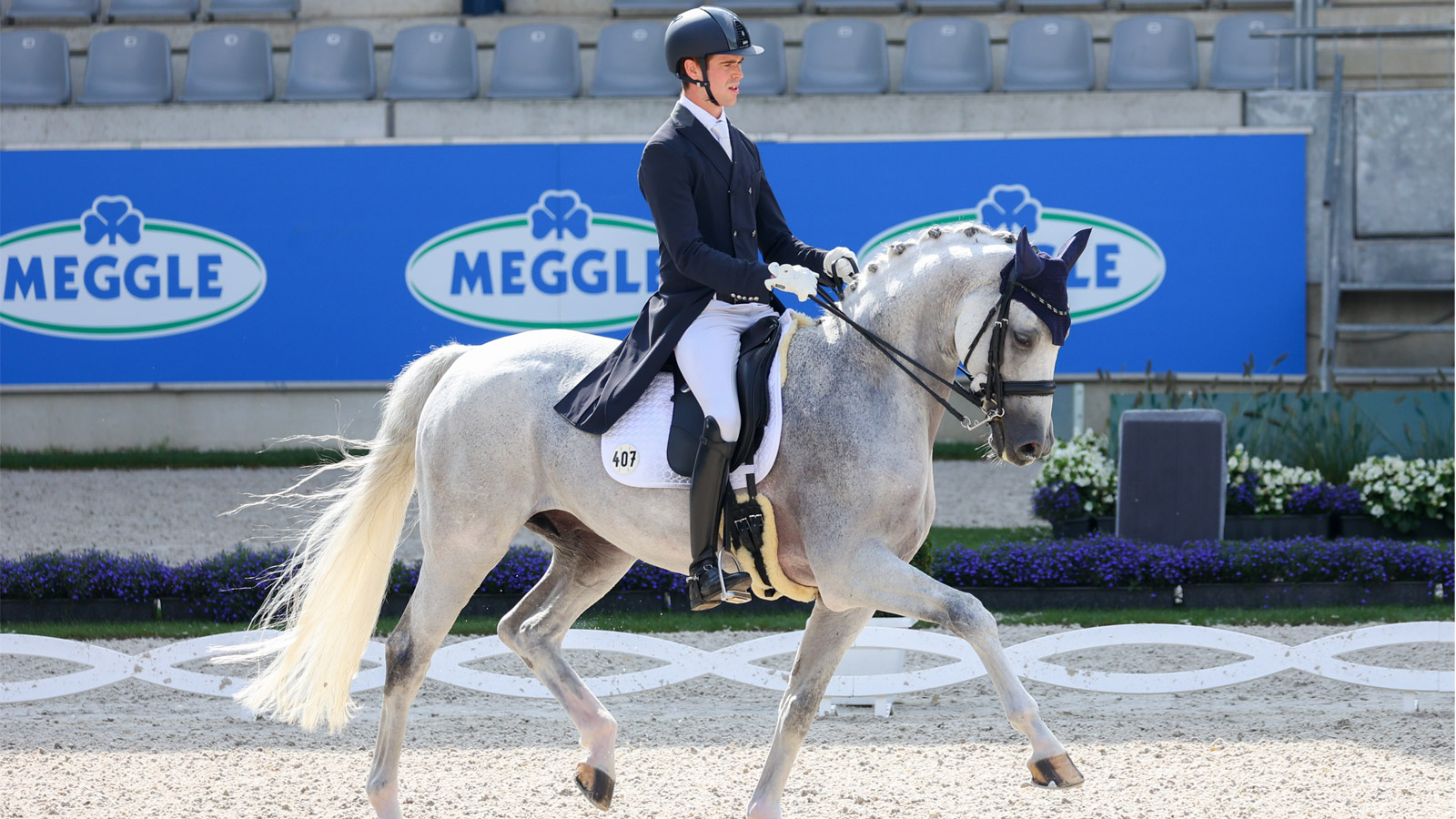For Australian Olympian Will Matthew, 2025 has marked the start of a new chapter. After more than a decade immersed in Europe’s most elite dressage stables, he has stepped into full independence and is running his own training and competition business based at HM Sporthorses in Dinslaken, Germany.
It’s a move that blends the new and the familiar. The property, owned by the Hödl family, is a place Will knows well – he worked there for two years before joining Isabell Werth’s team in 2019, and for the past five years it has been his afternoon base after mornings at Werth’s. Now, he rents stables on-site, running his own operation alongside the Hödl family and co-owning several horses with them.
“Of course, this is the first time I’ve been completely self-employed,” Will explains. “But the jump wasn’t so big because I’d already been running my own stable half-time. I was with Isabell in the mornings, then came here in the afternoons. So, the transition felt smooth. What’s different now is that everything I do is for me and my future – and that changes the way you work.”
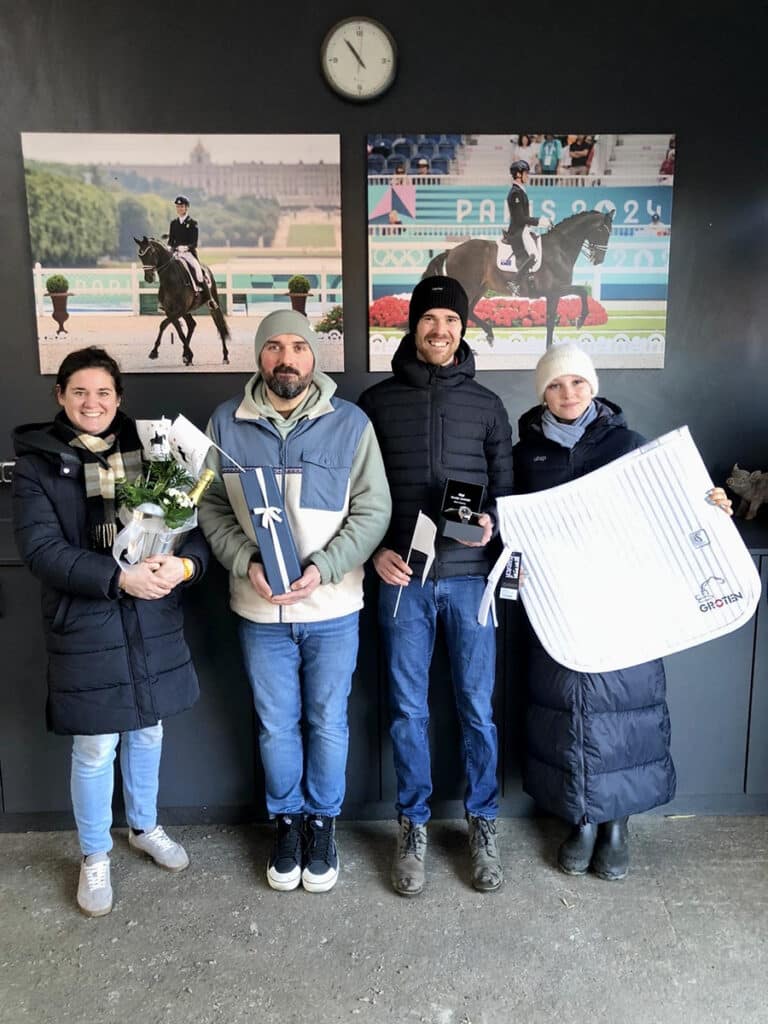
Will and partner Ellen with Marlene and Juergen Hödl, owners of HM Sporthorses and the property where Will is based.
“All of that energy
goes into my horses
and my business.”
THE REWARDS AND THE PRESSURE OF INDEPENDENCE
For Will, the most rewarding part of going independent has been focus. No longer dividing his energy between Werth’s horses and his own, he can now give everything to his own business and the horses he’s developing.
“Before, I wanted to do the best possible job for Isabell, but at the same time I was trying to build something of my own. Now all of that energy goes into my horses and my business.”
He’s not doing it alone. Running the stable alongside him is Swedish rider Ellen Hedbys, his partner both personally and professionally. Ellen has been instrumental in shaping the daily rhythm at the yard – supporting the training program, helping with client horses, and providing the eyes on the ground every rider needs.
“She’s the person I rely on most in training,” Will says. “She knows me best and understands how I want things to feel and look. I trust her the most, especially in the warm-up. It’s really a partnership.”
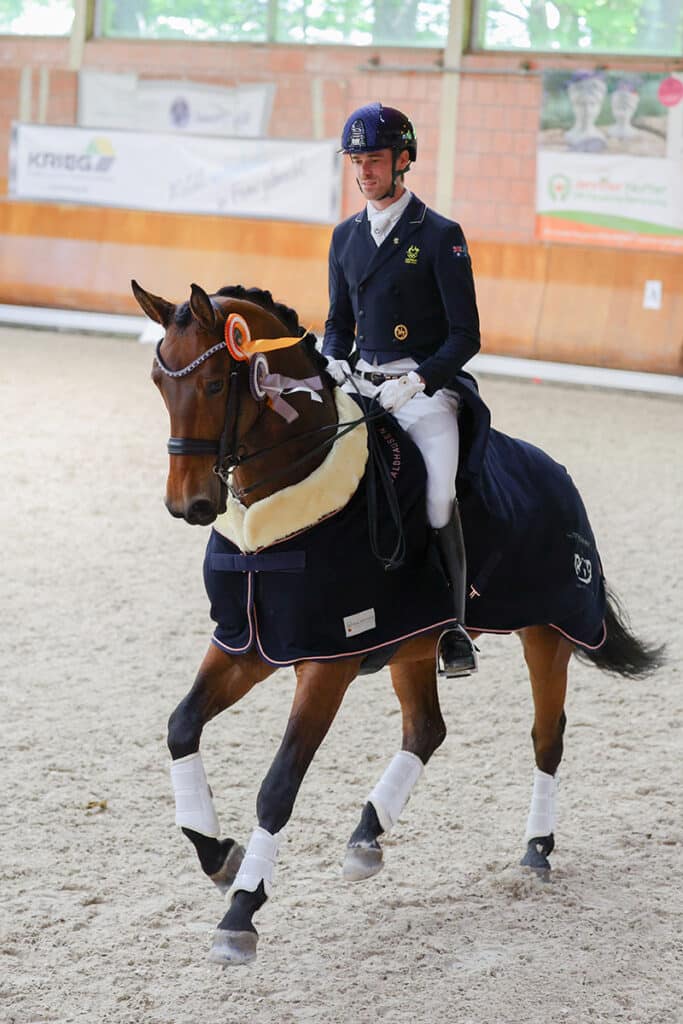
Will and Annamira, a mare he had in training for four years and who won her first Grand Prix with 73% at the start of the year before being sold in May. Image by LL Foto.
While the focus gained via going independent brings passion, there is also new responsibility. “There’s a mental pressure that it’s all on me to make it work,” he admits. “In the beginning I worried – would I get enough clients? Would I still have good horses to ride? Would I make enough money? You can’t offload those questions onto anyone else.”
Months on, he feels more settled, but the pressure remains part of the job. “That responsibility is also motivating. It pushes you to get up every day and give your best.”
“I think the horses
feel that consistency…”
CREATING THE RIGHT ENVIRONMENT
Over the past 13 years, Will has worked in stables across Europe, absorbing lessons along the way. Those experiences have shaped the environment he now strives to create.
“I’ve seen so many stables get too big – too many horses for the number of staff. It’s tempting to say yes to every opportunity, but then you can’t give each horse the time it needs. I’ve been very strict with myself to keep the numbers at a level where every horse gets the attention it deserves.”
That balance took a few months to find, but the system now feels right. “It’s important for me that every horse gets out to the paddock or field every day and is worked properly. Now the day flows nicely, and I think the horses feel that consistency.”
Will describes the atmosphere he wants as one of “relaxed focus” – a calm environment where horses and riders alike can thrive.
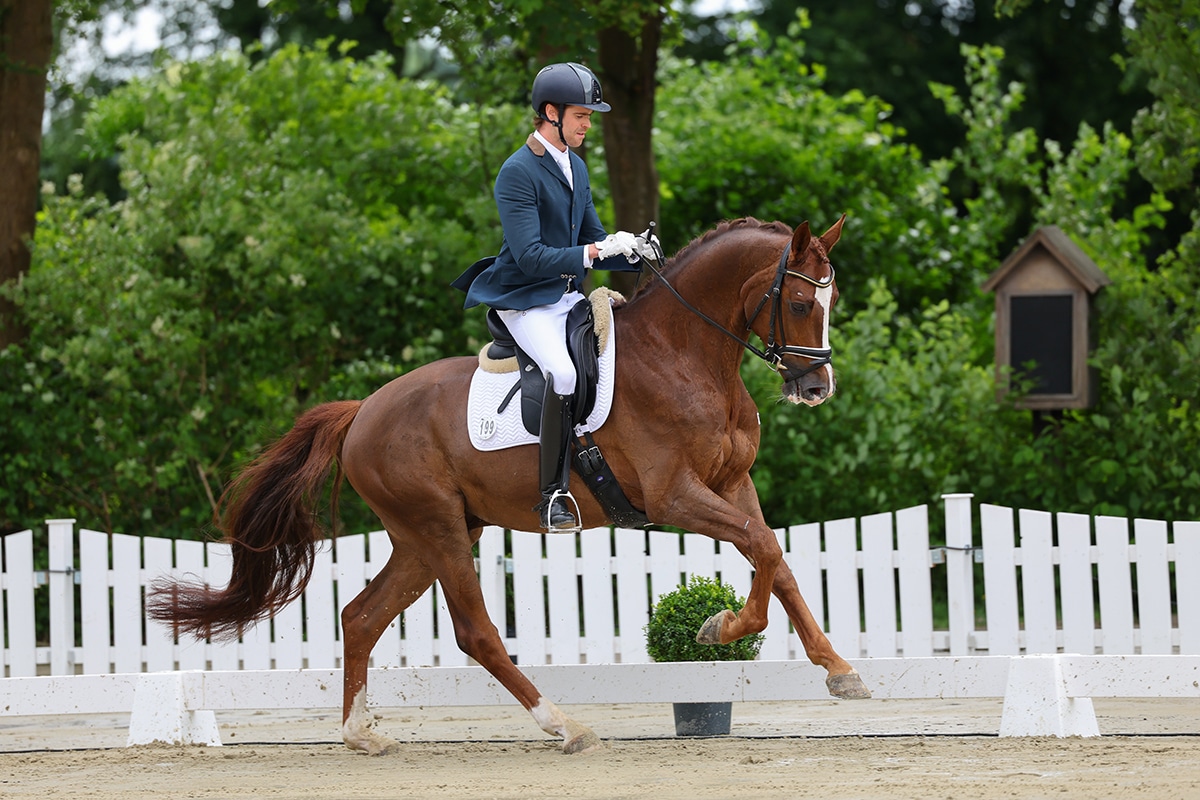
Will riding Flintstone at the Bundeschampionate (German national young horse championships) qualifier. Image by LL Foto.
LIFE ON THE PROPERTY
In practical terms, Will’s daily routine hasn’t changed dramatically. “I will start around 7:30am and keep going until everything is done. But it’s easier now in some ways. I live on the property, so instead of driving to Isabell’s and back, I just walk out the front door and I’m in the stables.”
Running the operation brings new responsibilities – managing farriers, vets, turnout schedules, and client communication – but the riding remains at the core. “That’s the part I love most, and it hasn’t changed. What’s different is that I have to think more about the overall flow of the business, not just the horses under saddle.”
HORSES TO WATCH
At present, Will’s stable is home to 14 horses, a blend of sale horses, long-term training horses, and the couple’s own investments.
Among them is Paarat, a five-year-old gelding by Fürst Jazz that Will has high hopes for. “I believe he could be my next top horse, which is really exciting,” he says. “We’ve got three other young ones, and the idea is that by selling some, we can afford to keep one for the big sport. We all know that’s bloody expensive.”
Client horses are also part of the picture. Young rider Sophie Koke campaigns two with Will’s support: Flinstone, a five-year-old Floriscount gelding, and an older Feedback gelding, Faro.
“Flinstone is a really nice type. I believe he could even be an option for the Young Horse World Championships next year for Australia,” Will says. Sophie is also an important member of the team, helping ride when he and Ellen are away.
This year, Ellen qualified for the European Championships in the Under 25 division with her horse Sonnenkonigin, and Will proudly stepped into the role of groom and trainer. “Sometimes I think I’m more nervous than she is,” he laughs. “But it gave me a chance to still be part of the international scene, even when I didn’t have a horse competing myself.”
After a year focused on establishing the business, Will is now ready to step back into the competition ring. At present, he has plans for client-owned Redburry Blue, an eleven-year-old gelding by Romanov. “We’re hoping to make an Inter II debut soon,” he says. “He’s extremely talented, but like many talented horses, not the easiest. If I can manage to get him consistent, I think he could also be a team horse.”
Will also hints at another horse under negotiation that could be a serious team prospect for Australia. “We’re in the middle of discussing the deal with the owner, so I can’t say more yet – but it’s exciting.”
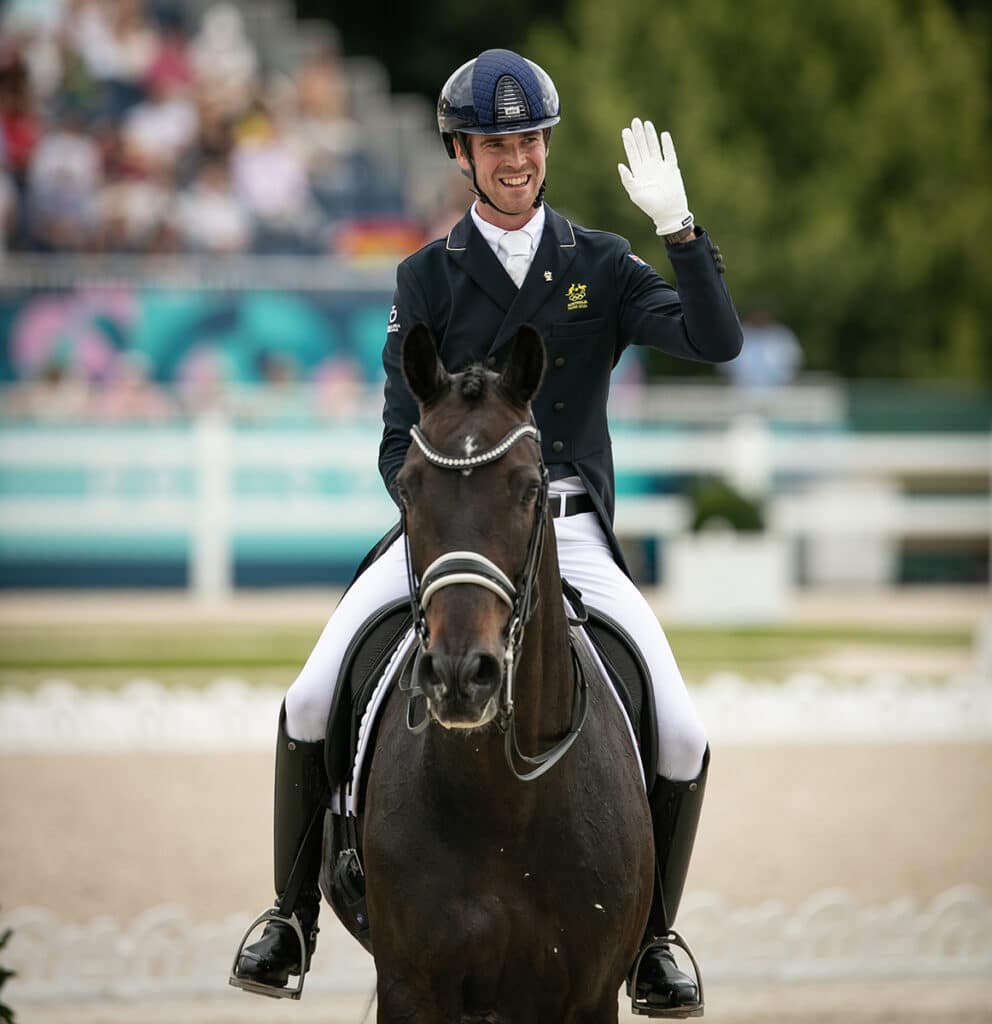
Will is all smiles aboard Mysterious Star following their Grand Prix Special test at the Paris Olympics. Image by Michelle Terlato Photography.
Looking to 2026, Will’s goal is clear: more time in the competition arena. “This year was quiet on that side, and I do miss it. My real passion is building young horses through the levels, but I’m also motivated to get back out competing myself.”
There is also excitement around Australian young rider Maddy Vallender, who trains at HM Sporthorses and recently purchased Isla Bonita, an eight-year-old mare. “It’s a very exciting combination for Australian dressage,” Will says. “Maddy has also been a huge help in the stable, making horses ready in mornings and really contributing to the team.”
SUPPORT AND MENTORSHIP
Although he no longer rides daily at Werth’s yard, Will continues to value her as a mentor. “Isabell is someone I know I can always call if I have a question or a problem,” he says. “She also recommends clients to me if she doesn’t have space, which has been great.”
He supplements that support with occasional lessons from Swedish Olympian Patrik Kittel. “One lesson with Patrik gives me so many new ideas – it’s really inspiring.” Combined with Ellen’s daily input, Will feels he has a strong support system around him.
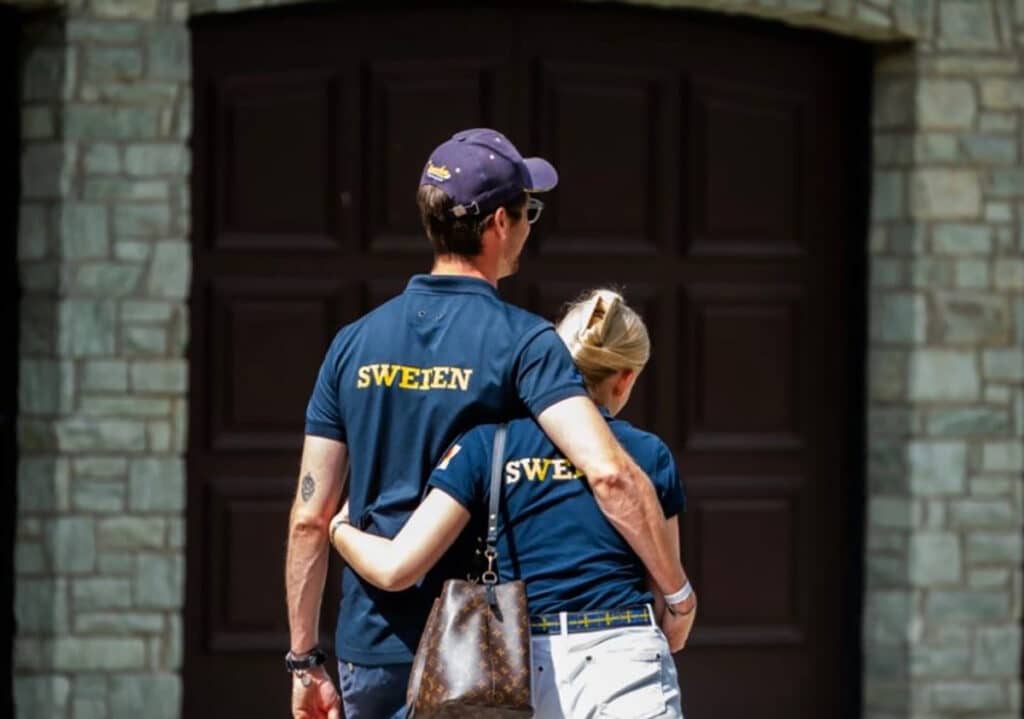
Will and Ellen at the European Championships. Image by Lukasz Kowalski.
BALANCING BUSINESS AND AMBITION
The challenge now is balance: keeping the business sustainable while pushing his competitive goals. “This year my focus was on the business,” he admits. “The sale horses are important for serious income, but the training horses provide consistent stability. I think next year the balance will work well.”
Even when he was away at Ellen’s shows, Will found the horses at home benefited from downtime. “They had small holidays with lunging and paddock time. It’s not a bad thing for them to have breaks in between.”
THE LONG VIEW
When asked about the future, Will’s vision is pragmatic but ambitious. “I don’t want the stables to get too big. For me it’s more about increasing the quality of the horses we have,” he says. “One dream is to one day own my own stable. But we definitely need to make a few more sales before that point.”
Above all, he hopes to reach a stage where financial pressure doesn’t dictate competitive decisions. “My biggest dream is to not feel like I have to sell the best horses before a championship. I want to be in a position where I can keep them long-term for sport.”
Though his business is still in its early days, Will has carved out a base that mirrors his ambitions – professional, purposeful, and deeply driven. Based at HM Sporthorses – a setting that offers both history and opportunity – it’s the perfect foundation for the next chapter of his career. EQ
